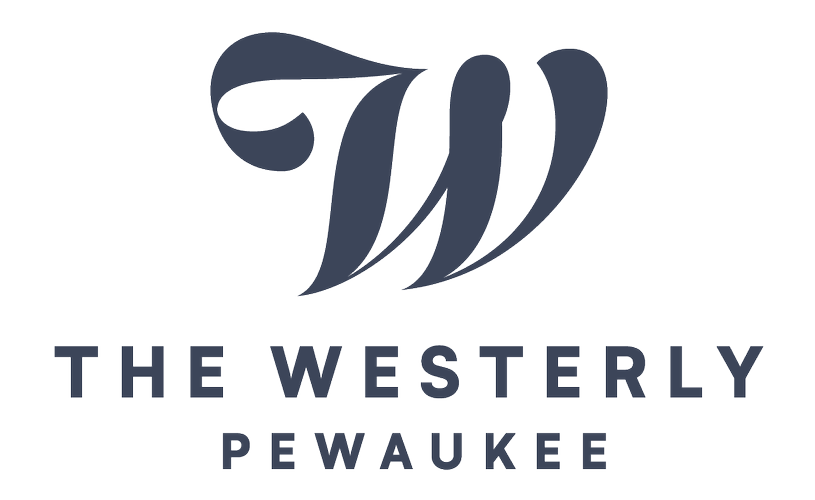The Ultimate Guide to Downsizing for Retirement: 7 Essential Tips
March 28, 2025
Downsizing for retirement involves moving to a smaller home, reducing personal possessions, and saving money. This guide will provide essential tips and steps to help you make informed decisions, simplify your life, and enjoy a more manageable retirement.
Key Takeaways
Downsizing helps retirees transition to smaller, more manageable homes and simplify their lifestyles, freeing up time for activities they enjoy.
The financial benefits of downsizing include saving on housing expenses and potential medical costs, which can enhance overall retirement quality.
It’s essential to assess your financial situation and prepare your home for sale effectively to maximize its value and ease the transition when moving into a retirement community.
Understanding Downsizing in Retirement
Downsizing in retirement often involves moving from a larger home to a smaller one, typically with less upkeep. For many retirees, this transition can mean moving to a retirement community where the living spaces are more manageable and maintenance is taken care of by the community staff. But it’s not just about the size of the home; it’s also about reducing the number of personal possessions, such as furniture and vehicles, to fit into a smaller living space.
The downsizing process can be emotionally and physically taxing, especially when it comes to parting with sentimental items. Many retirees start considering downsizing in their late 50s to early 60s, commonly around age 55. This is often a time when children have moved out, and the need for a large family home diminishes. Assessing your new home, including examining online floor plans, helps determine which possessions will fit and what needs to be let go.
Ultimately, downsizing is about simplifying your life. It allows older adults to focus on what truly matters: enjoying their retirement years without the burden of maintaining a larger home. Whether you’re moving to a smaller home or a retirement community, the goal is to create a living environment that supports your new lifestyle.
Why Consider Downsizing for Retirement?
There are numerous benefits to downsizing in retirement, making it an attractive option for many retirees. One of the most compelling reasons is the potential to save money. Downsizing your home can lead to a significant reduction in housing expenses. This includes lower costs for mortgage payments, property taxes, insurance, and maintenance. These savings can then be redirected towards enjoying your retirement, whether it’s traveling, hobbies, or simply having a more comfortable lifestyle.
Beyond the financial savings, downsizing can also simplify daily life. A smaller home means less space to clean and maintain, freeing up your time to focus on activities you enjoy. For many retirees, the idea of less upkeep is a significant factor in their decision to downsize. Additionally, health-related concerns often push seniors to choose homes that offer better accessibility and at-home care options.
Another reason many older adults consider downsizing is the rising medical costs and other financial pressures that come with age. By reducing your living expenses, you can alleviate some of these financial burdens and ensure a more secure future. Downsizing isn’t just about moving to a smaller home; it’s about creating a living situation that supports your health, happiness, and financial well-being.
Assessing Your Current Financial Situation
Before you embark on the downsizing journey, it’s crucial to assess your current personal finance situation. This includes understanding how your mortgage payment will affect your budget and considering all home-related expenses, such as property taxes, income taxes, insurance, and utilities. Consulting with multiple real estate agents can provide a more accurate home valuation, helping you avoid overly optimistic estimates that can skew your financial planning.
Many retirees make the mistake of overestimating their current home’s value. Online property estimators can often be inaccurate, so professional appraisals are essential for getting a realistic understanding of your home’s worth. Consulting with local real estate agents provides valuable insights into current market pricing in the real estate industry and aids in making informed decisions.
When considering downsizing, it’s also important to factor in closing costs, legal fees, and moving expenses. Downsizing can lead to significant financial relief by lowering your monthly housing-related expenses. The financial advantage typically occurs when moving from a large mortgage to a smaller or nonexistent one. Maximizing your home sale proceeds can be achieved by making necessary repairs and working with a reputable real estate agent.
Comparing Costs: Current Home vs. Retirement Community
When comparing the costs of staying in your primary residence versus moving to a retirement community, consider the following expenses for your current home:
Mortgage payments
Property taxes
Utility costs
Home maintenance
Insurance
Additionally, factor in potential home modifications for accessibility and costs of in-home care, if needed.
On the other hand, retirement community costs often include all-inclusive monthly fees that cover housing, meals, utilities, and basic services. Some communities may require an entrance fee, and there could be additional care costs depending on your needs. Many retirement communities also offer activities and social events, transportation services, and varying levels of care, from independent living to assisted living and memory care.
When comparing costs, consider your current health status and future care needs. If you are healthy and independent, staying in your home might be more affordable, but most likely only in the short term. However, if you anticipate needing more care in the future, a retirement community could provide better value and peace of mind. Thoroughly comparing the costs and benefits of each option helps in making an informed decision that best suits your retirement lifestyle.
Preparing Your Home for Sale
Preparing your home for sale is a crucial step in the downsizing process. Start by investing in minor repairs and maintenance, such as fixing leaky faucets or squeaky doors, to create a more inviting atmosphere for buyers. Replacing outdated appliances with modern, energy-efficient models can also improve buyers’ perceptions and potentially increase your home’s sale price.
Enhancing your home’s curb appeal can significantly attract potential buyers. Simple updates like fresh paint, new front doors, and landscaping can make a big difference. Inside, choosing neutral paint colors for interiors can make spaces feel larger and more appealing to a broader range of buyers.
Finding the Perfect Retirement Community
Finding the perfect retirement community is a key part of the downsizing journey. Many retirees choose to relocate to more desirable locations that offer better amenities and access to services. One such option is The Westerly Pewaukee, Lake Country’s newest senior lifestyle community, which offers a premium independent living experience for those looking to downsize.
Living in a retirement community like The Westerly Pewaukee comes with numerous benefits, including a maintenance-free lifestyle, more time for fitness, social activities, lifelong learning, creativity, and fun. The independent living lifestyle features private one- and two-bedroom residences, allowing retirees to maintain their independence while enjoying a strong sense of community.
When evaluating different retirement communities, consider factors such as location, amenities, level of care offered, and the overall community atmosphere. Life at The Westerly Pewaukee is centered around deepening connections within the community, making it an ideal choice for those looking to enhance their social life and well-being.
Practical Tips for a Smooth Downsizing Process
Downsizing can feel overwhelming, but with the right approach and some downsizing tips, it can be a smooth and rewarding experience. Start the process well in advance, ideally over several months, to avoid stress and allow enough time for thoughtful decision-making. Consulting with downsizing professionals can provide valuable insights and assistance, making the process more manageable.
Develop a detailed plan to simplify the moving process and reduce stress. Begin with the most challenging possessions, such as family heirlooms and sentimental items, to ease the emotional burden of decluttering. Taking an inventory of your belongings can help clarify what you possess and assist in the moving process. Certain online tools and programs can make inventorying easier.
Establish priorities for your new space to streamline decision-making during downsizing. Using storage solutions can efficiently organize belongings in your downsized home. Carefully measuring dimensions, including storage spaces, ensures that your possessions will fit comfortably. Remember, patience is key, as downsizing can be both physically and emotionally taxing.
Summary
Downsizing for retirement is a significant decision that can lead to a more fulfilling and financially secure future. By understanding the downsizing process, evaluating your financial situation, comparing costs, and finding the perfect retirement community, you can make informed choices that enhance your retirement lifestyle. Practical tips for a smooth downsizing process ensure that you approach this transition with confidence and ease.
Embrace the journey of downsizing as an opportunity to simplify your life, reduce stress, and focus on what truly matters. Whether you’re moving to a smaller home or a retirement community like The Westerly Pewaukee, the goal is to create a living environment that supports your health, happiness, and financial well-being. If you’d like to take the first step today and enjoy a more relaxed and enjoyable retirement, feel free to get in touch with our friendly staff and schedule a tour to experience everything The Westerly Pewaukee has to offer.
Frequently Asked Questions
What are the main benefits of downsizing for retirement?
Downsizing for retirement can save you money, lower home maintenance costs, and simplify your lifestyle. Plus, it often provides better accessibility and care options, making life easier as you age.
How can I accurately assess my current home's value before downsizing?
To accurately assess your home's value before downsizing, it's smart to consult multiple real estate agents for professional appraisals, as online estimators can often miss the mark. This approach gives you a reliable valuation tailored to your specific property.
What should I consider when comparing costs between my current home and a retirement community?
When comparing costs, look closely at your current home's expenses like mortgage, taxes, utilities, and maintenance versus the retirement community's all-inclusive fees and potential care costs. This will give you a clear picture of what you'll be paying in each scenario.
How can I prepare my home for sale to maximize its value?
To maximize your home's value before selling, focus on minor repairs, update appliances, boost curb appeal, and use neutral paint colors. This approach can really make your home more appealing to buyers!
What are some practical tips for a smooth downsizing process?
A smooth downsizing process starts with giving yourself plenty of time and creating a clear plan. Make an inventory of your belongings, prioritize what fits into your new space, and don’t hesitate to use storage solutions to ease the transition.


